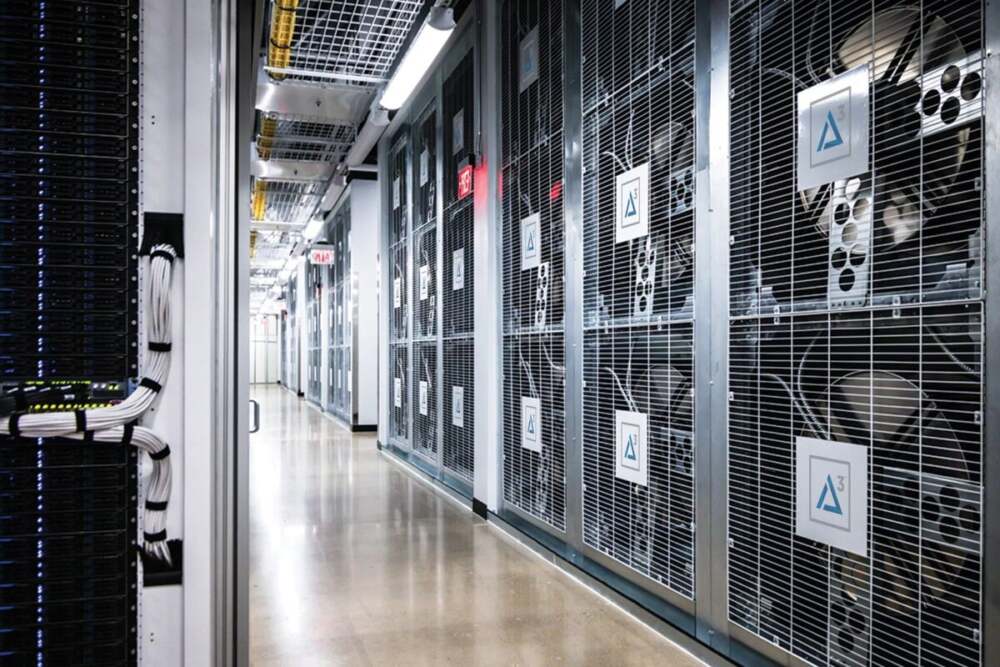Global Infrastructure Partners (GIP), the infrastructure arm now affiliated with BlackRock, is reportedly in advanced negotiations to purchase Aligned Data Centers in a deal that would value the company at about $40 billion. The acquisition, still tentative, is seen as a high-stakes move to capture a commanding position in the fast-growing AI infrastructure sector.
What the Deal Looks Like
According to people familiar with the matter, GIP is in the late stages of discussions with Macquarie, which currently backs Aligned. The proposed deal would see GIP assume full ownership or control of Aligned’s portfolio, consolidating significant data center assets under its umbrella. An official announcement could come within days, though terms are not yet finalized.
One interesting wrinkle: MGX, an AI investment firm co-founded by Mubadala and G42 (based in Abu Dhabi), is also participating in the transaction, investing independently as part of the deal. This suggests that sovereign and technology capital are aiming to align on AI and digital infrastructure expansion.
Why Aligned Is So Valuable
Aligned Data Centers has become a go-to for AI-centric infrastructure. The company has built a platform of over 50 campuses and dozens of data centers across the U.S. and parts of Latin America. Its specialization centers on high-performance, energy-efficient facilities designed to host large AI workloads, including generative modeling, machine learning, and high throughput computing.
Earlier in the year, Aligned raised more than $12 billion in funding rounds, underlining both investor confidence and the scale of capital required to support AI infrastructure growth.
What makes Aligned particularly attractive to GIP is not just its land and buildings, but its electricity access, site resilience, and design optimized for AI’s power and cooling demands. AI workloads require dense computing, which puts enormous stress on power and thermal systems — areas where Aligned has differentiated.
Strategic Rationale for GIP
For GIP, the deal is more than a real estate play; it’s a bet on the economics of AI. Infrastructure funds have long eyeballed power, pipelines, and cell towers. But the AI boom has created a new frontier: data centers that can handle the scale, efficiency, and reliability demands of next-generation AI models.
By acquiring Aligned, GIP would gain a vertical in one of the core physical components of the AI stack. The deal would place GIP in a position to benefit from soaring power demand, land constraints in key markets, and the scarcity premium on well-located, AI-ready data centers.
Also, GIP has a track record of infrastructure acquisitions. It already holds strategic assets in transportation, terminals, and utilities. Adding a digital infrastructure layer allows it to diversify into tech-adjacent domains where future growth is concentrated.
Challenges, Risks & Hurdles
While the proposed transaction is bold, it comes with major challenges:
- Regulatory scrutiny: Large infrastructure or data deals attract attention from competition and national security authorities. The cross-border nature and involvement of sovereign capital (MGX) may complicate clearance.
- Debt & capitalization: Valuing at $40 billion implies significant debt and capital structure burdens. GIP must ensure financing is viable and that returns justify the huge capital outlay.
- Execution risk: Converting Aligned’s facilities into consistently profitable, fully utilized capacity will require filling the data halls, securing long-term clients, managing power contracts, and ensuring uptime.
- Competitive threats: Rival infrastructure firms, hyperscalers (like Amazon, Google, Microsoft), or existing colocation providers could respond aggressively — by expanding their own fleets, locking in power, or undercutting leases.
- Macro and energy risk: AI workloads demand huge electricity. If power costs, regulatory changes, or caps on carbon impact energy sourcing, the margin profile could shift dramatically.
Implications Across the Industry
If the deal closes, it would rank among the biggest data infrastructure acquisitions in recent years. It would set a benchmark valuation for AI-ready data center portfolios and likely spark further consolidation.
- Benchmarking AI real estate: Other owners of specialized data center assets will benchmark against Aligned’s valuation; this deal could catalyze further M&A.
- Infrastructure capital shifting toward tech: Traditional infrastructure funds may more aggressively target data, fiber, edge, and compute assets.
- Increased vertical integration: Owners may experiment with combining power, data, and connectivity operations under unified platforms.
- Raising the bar for new entrants: New data centers will need to show not just space, but power density, design for AI loads, energy resilience, and connectivity.
What to Watch
- Announcement timing and structure: Whether the deal is a full buyout, joint venture, or partial stake.
- Financing and debt terms: How much debt GIP will assume, interest rates, and leverage ratios.
- Customer and tenant reaction: Will existing Aligned customers renew or renegotiate, and how GIP manages tenant retention during the transition.
- Regulatory approval process: Any demands for divestitures, power asset separation, foreign investment reviews.
- Expansion plans post-deal: GIP’s roadmap for scaling capacity, adding new campuses, or entering edge markets.
Conclusion
GIP’s near-term purchase of Aligned Data Centers for around $40 billion could become a landmark in the infrastructure-AI convergence. It would foreshadow the era when owning physical capacity for compute becomes as critical as owning pipelines or power grids. The deal, if consummated, would give GIP a dominant branch in the digital backbone of future industries.
But as with any massive deal, the real test will be in execution — financing, regulation, and operational scaling. For now, the market is eagerly watching to see whether this bold step transforms from headline ambition to realized architecture of AI infrastructure.
















Leave a Reply